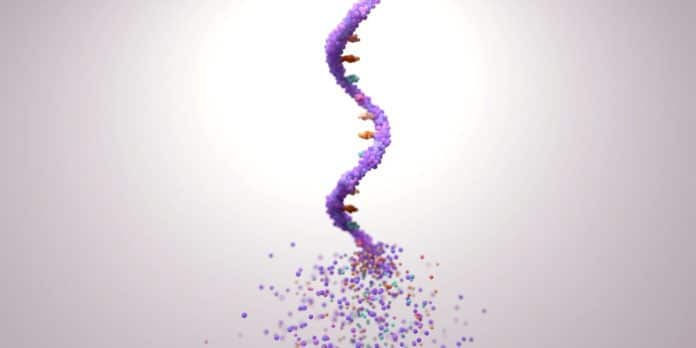Scripps Research scientists have introduced a new software tool for examining RNA (ribonucleic acid) molecules, which play a variety of important roles in living things. The open source program “Pytheas,” reported in Nature Communications on May 3, 2022, makes it easier to characterise and quantify RNAs in basic research and therapeutic development.
The software is meant to examine RNA data generated by a technique known as mass spectrometry. The term “mass spec” is widely used to describe RNA molecules that aren’t just chains of ordinary RNA nucleotides but have been altered in some way. Pytheas can be used to quickly identify and quantify modified RNA molecules, such as those seen in the current Pfizer and Moderna COVID-19 mRNA vaccines, according to the researchers.
“The analysis of RNA data from mass spectrometry has been a relatively laborious process, lacking the tools found in other areas of biological research, and so our aim with Pytheas is to bring the field into the 21st century,” says study senior author James Williamson, Ph.D., professor in the Department of Integrative Structural and Computational Biology, and vice president of Research and Academic Affairs at Scripps Research.
Luigi D’Ascenzo, Ph.D., and Anna Popova, Ph.D., respectively a postdoctoral research associate and a staff scientist in the Williamson lab at the time of the study, were the first authors. RNA molecules in cells are substantially involved in the process of translating genes into proteins, as well as fine-tuning gene activity because they are chemically identical to DNA. RNA-based treatments, such as the Pfizer and Moderna vaccines, are also seen as a promising new class of medicines, capable of reaching biological targets more potently and selectively than standard small-molecule pharmaceuticals in theory.
Mass spectrometry is a common tool for detecting RNA molecules with chemical alterations, as it can be used to recognise RNAs and their modifications based on their masses. Natural RNAs are frequently transformed, affecting their roles, but RNAs used in vaccines and RNA-based medications are virtually always purposefully modified to improve their activity and minimise negative effects. In comparison to equivalent methods in the field of protein analysis, for example, methods for processing raw mass spectrometry data on modified RNAs have been extremely slow and manual—thus, quite labor-intensive.
To dramatically increase the automation of this procedure, Williamson and his colleagues created Pytheas, which is based on the Python programming language. The software takes mass spec data from an RNA sample as input and outputs anticipated RNA sequences and chemical changes in a way that allows different RNAs in a sample to be quantified easily.
Using mass spec data for major bacterial and yeast RNAs, as well as SARS-CoV-2 spike protein messenger-RNAs like those utilised in the Pfizer and Moderna COVID-19 vaccines, the scientists confirmed Pytheas’ speed, accuracy, and adaptability. Pytheas is presently being used by the researchers in their investigations of natural RNAs, and the programme is still being improved. Pytheas can be downloaded for free from the Github software source.









































































